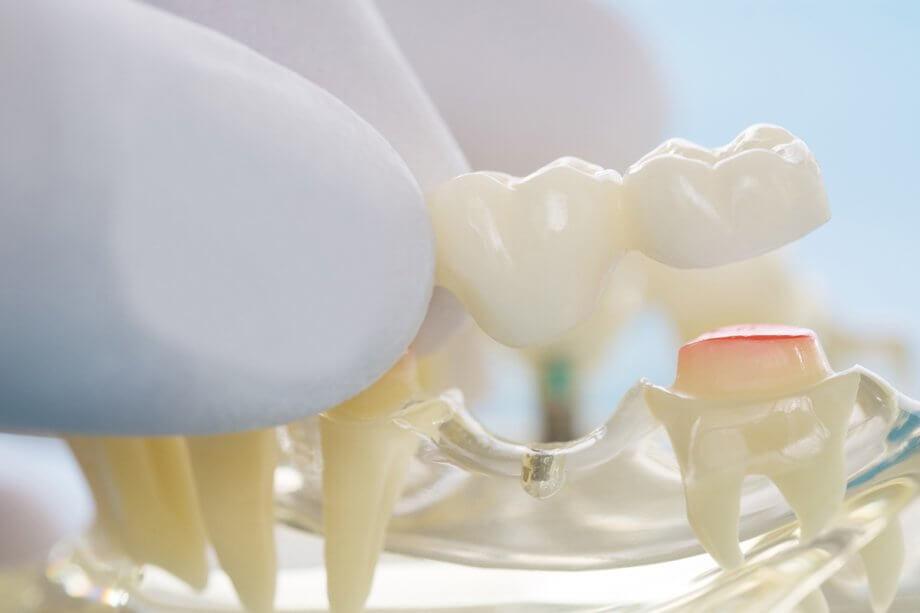A dental bridge is a common dental restoration that fills the gap left by a missing tooth or missing teeth. A dental bridge is anchored to the teeth or dental implants on either side of the gap. Although dental bridges can restore your smile, it’s important to note that they are not permanent solutions to missing teeth. Dental bridges that are attached to natural teeth or dental crowns typically last 5-15 years, before you will need to have them replaced. However, dental bridges that attach to implants often last more than 20 years. Read on to learn more about dental bridges, including alternatives for replacing missing teeth.
What is a Dental Bridge?
A dental bridge uses an artificial tooth to fill a gap left by a missing tooth or teeth. The artificial tooth is held in place by being attached to teeth that have crowns on them, or to dental implants on either side of the gap. Of the various types of dental bridges, the implant-supported bridge is the strongest and most stable type of dental bridge.
An implant-supported bridge also causes less stress on natural teeth, because it does not require reshaping of an existing, and otherwise healthy tooth, to support the bridge.
Alternatives to Dental Bridges
Whether you’re missing a single tooth, a few teeth, or all teeth on your upper or lower arch, you will likely have the option to replace your teeth with dental implants instead of a bridge. Dental implants are the leading treatment for replacing missing teeth.
Dental implants are the premium choice for replacing missing teeth because they help to preserve your jawbone. When you’re missing a tooth or multiple teeth, the jawbone beneath the empty socket begins to deteriorate. This is because the singular job of the bone in the jaw is to support your teeth.
When the teeth are no longer there, the body pulls its energy and blood flow from the bone and tissue beneath the empty socket. As a result, the jaw begins to change shape. Without intervention, jaw bone loss will eventually lead to an altered facial appearance which makes the mouth look sunken.
Dental implants also allow for excellent oral hygiene, as you brush and floss your teeth normally with implants. This can prevent the buildup of decay and plaque that leads to gum disease. Dental implants are also incredibly durable. With excellent oral hygiene habits and regular dental exams and cleanings, implants may last your entire life.
Other options for replacing missing teeth include implant-supported dentures, which may be available to patients missing all or most of the teeth on either the upper or lower jaw. Implant-supported dentures do not require that you replace all teeth with implants. Instead, you’ll need at least two dental implants that your dentures will snap onto, resulting in a more secure fit.
Finally, a full arch using only four implants is also an option for patients who are missing all teeth on either the top or bottom arch. Benefits of a full arch using only four implants include a more secure fit and less reliance on denture adhesives.
Schedule a Consultation to Replace Missing Teeth in Massachusetts
If you’re missing one or more teeth, it’s time to schedule a consultation with an experienced oral surgeon to discuss your options. At the Oral & Facial Surgery Centers of Massachusetts, our experienced oral surgeons will custom design implant-based solutions to restore your smile and your oral health. Contact us today to schedule a consultation.
Burlington Office: 781-272-0800
Cambridge Office: 617-468-3100

